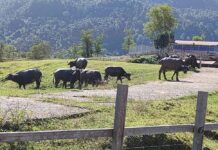A RECENT STUDY was conducted to understand farmers’ perspectives regarding co-existing biotech and organic methods in the Philippines. The results can help policymakers develop a national agriculture agenda that takes farmers’ choice of crop and farming methods into account.
Thirty-five biotech farmers and 35 organic farmers from the Philippines were interviewed to explore how farmers view the concept of co-existence and understand their decision-making process and what influential factors affect this process. The researchers from Japan and Taiwan noted that the mixing of farming methods in the Philippines has not been fully explored as exhibited by the framework of organic farming policies. They also theorized that if biotech crops are allowed to be organically grown and sold in the country, a balance between yield, income, and national agenda could be achieved since these can provide more choices for farmers to suit their specific production and farm needs and capabilities.
The study found that the Filipino farmers’ foremost considerations are income and yield because these support both their livelihood and family needs. Influential factors that affect their internal response were also identified: external factors such as culture and social interactions influence the coexistence perspective of organic farmers, while biotech farmers relied more on internal factors like consumer resources. Organic farmers were also more affected by reduced yield. Furthermore, the data gathered by the researchers showed that biotech and organic farmers are open to the co-existence of farming methodologies.
The study highlights the need to focus on stakeholder perspectives regarding agricultural policies. The study reflected the farmers’ views about co-existence and its potential acceptability. These data can support future national policy framing in the Philippines.

















